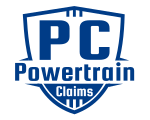Questions to Consider | Powertrain Analytics
3 Classifications of Powertrain Analytics Services
Our Questions to Consider are the ideas we suggest you review before assigning any Powertrain Analytics request. These recommended questions coincide with our assignment forms.
- Powertrain Claims (Except Fuel Contamination Claims)
- Fuel Contamination Claims
- Vehicle Fire Investigations
Any Powertrain Claim (Except Fuel Contamination Claims)
Questions for Vehicle Operator
- What was the initial service, repair or incident? (e.g.: Engine overheating, engine oil change, check engine light on, etc.)
- What was the initial service or repair performed? (e.g.: Repaired cooling system, basic oil change, repaired electrical system, etc.)
- Date of the service, repair or incident?
- Mileage at the time of service or repair?
- What is the list of parts that were serviced or replaced?
- Approximately how far was the vehicle operated after the initial repair, service, or incident, in miles or time before a symptom was noticed?
- What were the first abnormal symptoms observed by the vehicle operator? (e.g.: Dash warning lights, abnormal engine sounds, lack of power, etc.)
Questions for Repair Shop
- What are the abnormal symptoms they have observed? (e.g.: Warning lights, abnormal engine noise, driveline vibration, etc.)
- What tests have they performed? (e.g.: Cylinder compression test, manual oil pressure test, reviewed codes, etc.)
- What Diagnostic Trouble “P” Codes have they obtained from the vehicle’s powertrain computer? (e.g.: P0521, P0130, P0195, etc.)
- What does the shop believe happened, which resulted in the powertrain damages?
- What parts if any have been removed or disassembled from the powertrain?
- What parts or assemblies do they believe are damaged?
Fuel Contamination Claims
Questions for Vehicle Operator
- Does the vehicle operator have an opinion regarding the source of the alleged fuel contamination?
- How much fuel was added in gallons during the last fuel fill?
- How far in miles or time was the vehicle driven before an abnormal symptom was first noticed since the last fuel fill?
- Which warning lights or messages were observed on the dashboard?
- How far did the vehicle operator continue to drive the vehicle after the first symptom?
- When was the last time the fuel system was professionally serviced?
- What type of fuel system service does the owner/operator themselves perform if any?
- Has any fuel been recently added to the vehicle from a small portable fuel container?
- If the vehicle is a pick up, does the truck have an aftermarket auxiliary fuel tank mounted in the bed?
Questions for Repair Shop
- What are the abnormal symptoms they have observed? (e.g.: Won’t start, runs rough, smoke from tailpipe, etc.)
- What specific tests have they performed? (e.g.: Fuel system pressure test, pulled fuel sample, reviewed codes, etc.)
- What Diagnostic Trouble “P” Codes have they obtained from the vehicle’s powertrain computer? (e.g.: P0087, P0090, P0094, etc., None or Unknown)
- What does the shop believe happened, which resulted in the fuel system or engine damages?
- What parts if any have been removed or disassembled from the powertrain? (e.g.: Fuel pump, fuel injectors, fuel filter, etc.)
- What parts or assemblies do they believe are damaged?
Vehicle Fire Claims
Questions for Vehicle Operator
- Was the engine running when the fire started?
- Was the vehicle in motion when the fire started?
- If the engine was running, approximately how long before the fire started?
- Were there any dashboard warning lights noticed right before the fire started?
- Did the fire start immediately after an impact or accident?
- Did the fire start with the engine and ignition off?
- Were there any unusual vibrations or performance issues right before the fire started?
- List any repairs or services that were recently performed to the vehicle.
